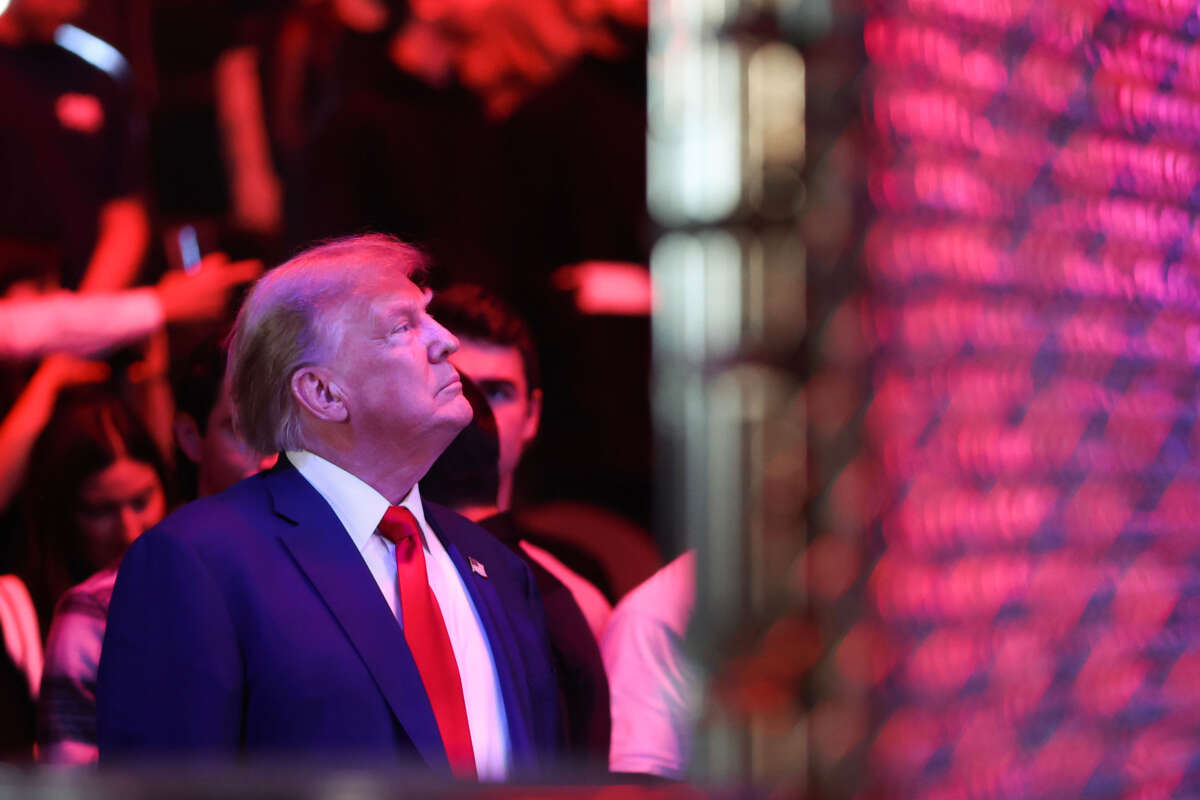Truthout is a vital news source and a living history of political struggle. If you think our work is valuable, support us with a donation of any size.
John Anthony Castro, a 2024 Republican presidential candidate, has petitioned the U.S. District Court of Alaska to declare Donald Trump ineligible to appear on the state’s election ballot.
Castro has filed similar lawsuits in more than two dozen states, with nine legal challenges remaining active after three states have dismissed the lawsuits.
“On January 6, 2021, after witnessing a large group of Trump supporters violently attacking the United States Capitol to prevent the lawful certification of the 2020 election results with the goal of unlawfully compelling Donald John Trump’s inauguration on January 20, 2021 (hereafter referred to as the ‘January 6th Insurrection’), Defendant Donald John Trump stated on live television, ‘we love you, you’re very special’ to the insurrectionists,” the lawsuit filed in the U.S. District Court of Alaska says. “Defendant Donald John Trump provided the insurrectionists with comfort in the form of words of sympathy.”
While the Alaska lawsuit was filed in September, the case has received renewed interest from political commentators after the Colorado Supreme Court found that Trump was barred from running for office under the 14th amendment earlier this month.
According to the Anti-Insurrection Disqualification Clause of the 14th Amendment, in order to be eligible to hold office in the U.S., a candidate must never have “engaged in insurrection or rebellion.” Castro’s lawsuit in Alaska, similarly to the successful suit in Colorado, asserts that on January 6, Trump “summoned his mob to our nation’s Capital, organized and assembled the mob, allowed weapons in the crowd by ordering security to let them pass, [and] radicalized the mob with incendiary rhetoric…”
Additionally, according to the lawsuit, on January 29, 2022, Trump publicly said that “If I run and if I win, we will treat those people from January 6 fairly. We will treat them fairly. And if it requires pardons, we will give them pardons.”
Some politicians in Alaska have said that they are concerned about potential consequences of disqualifying Trump from the ballot. “It is going to be dangerous if it is viewed by the people that the courts have denied them the opportunity to vote for somebody that they want to vote for,” Alaska U.S. Sen. Lisa Murkowski (R) said on December 22.
Since the Colorado Supreme Court ruled that Trump was not eligible to appear on the state’s primary ballot, the court justices have faced death threats that are currently being investigated by the FBI. Courts ruling to disqualify Trump from state ballots is “politically fraught with peril,” Murkowski said.
In 2021, following the events of January 6, Murkowski was among seven Republican senators who voted in favor of impeaching Trump. “The evidence presented at the trial was clear: President Trump was watching events unfold live, just as the entire country was,” Murkowski said in a statement. “Even after the violence had started, as protestors chanted ‘Hang Mike Pence’ inside the Capitol, President Trump, aware of what was happening, tweeted that the Vice President had failed the country.”
While the Michigan Supreme Court recently ruled that Trump would be allowed on the state’s primary ballot, departing from Colorado’s holding that Trump is ineligible from holding office under the 14th amendment, Maine may become the second state to disqualify Trump from a state’s primary ballot. Maine Secretary of State Shenna Bellows intends to announce her decision on Trump’s eligibility before the new year. On Wednesday, Trump’s lawyers demanded that Bellows recuse herself from deciding, referencing tweets she previously posted describing January 6 as an insurrection.
“Using similar language, the Challengers have claimed that the events of January 6, 2021, constituted a violent insurrection and that President Trump somehow poses a danger from which Maine voters must be protected. Thus, the Secretary has already passed judgment on the Challengers’ core assertions,” Trump’s lawyers wrote in a letter to Bellows.
Trump is also currently facing challenges to his eligibility to remain on states’ primary ballots in California, Michigan, Nevada, New Jersey, New Mexico, New York, Oregon, South Carolina, Texas, West Virginia, Wisconsin, Wyoming, Vermont and Virginia.
Holding Trump accountable for his illegal war on Iran
The devastating American and Israeli attacks have killed hundreds of Iranians, and the death toll continues to rise.
As independent media, what we do next matters a lot. It’s up to us to report the truth, demand accountability, and reckon with the consequences of U.S. militarism at this cataclysmic historical moment.
Trump may be an authoritarian, but he is not entirely invulnerable, nor are the elected officials who have given him pass after pass. We cannot let him believe for a second longer that he can get away with something this wildly illegal or recklessly dangerous without accountability.
We ask for your support as we carry out our media resistance to unchecked militarism. Please make a tax-deductible one-time or monthly donation to Truthout.
